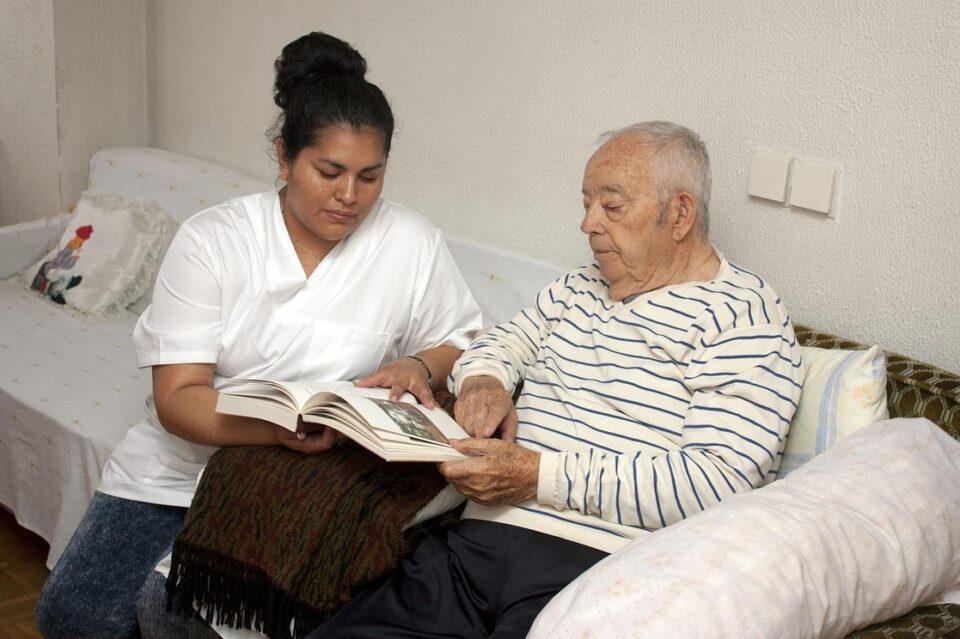A family nurse practitioner (FNP) is a nursing specialization in which professionals receive training to provide care to patients from a large age bracket, including kids and older adults. It is an in-demand concentration that offers nurses a wide range of financial, professional, and personal benefits.
According to the US News & World Report released recently, nursing practitioners have been declared the ‘best healthcare job’ in the country. Talking about FNPs in particular, it is estimated that there will be a shortage of nearly 124,000 professionals in the next decade, a gap that these nurses can fill appropriately.
That being said, here are a variety of other reasons to become a family nurse:
1. Plug the demand for a growing number of healthcare providers
It’s not just the US healthcare system but the global landscape that is overworked and understaffed. As the demand for primary caregivers increases, the need for FNPs does too. Family nurses can fill a critical gap in the system where professionals are required on a daily basis to tend to various patient needs.
The American Association of Nurse Practitioners (AANP) has pointed out that an average nurse can see as many as 3 to 4 patients each hour. Of all the nurses working in the field, more than 70% are FNPs, giving them a vast majority in terms of responsibilities that the entire infrastructure supports. Becoming a family nurse, therefore, solves a critical problem in the sector during the coming years.

2. Join a job market that is favorable for new entrants
Whether you are a licensed family nurse or someone who is yet to specialize in the field, there is a world of employment opportunities out there. Thanks to the internet, obtaining a specialized degree has become relatively convenient and feasible. You can easily enroll for a 12 month FNP program online and pave the way to become one of the 112,700 new nurses that will be added to the system by 2031, as per the US Bureau of Labor Statistics.
As a family nurse, you can find a job in various places. These include but are not limited to offices of physicians as well as practitioners other than doctors, home healthcare service providers, outpatient care centers, general medicine, surgical hospitals, etc. You can also opt to become a travel nurse who can tend to patients at their homes or relocate to another city or country.
3. Learn to care for patients in all age groups
A family nurse, as the name indicates, is a professional specializing in care for every family member. Irrespective of gender and age, FNPs are trained to diagnose, prescribe tests, assist in treatment, and facilitate the recovery of patients across the board. The education and experience of a family nurse provide the ability to communicate with kids and adults alike, eventually leading to improved health.
FNPs are taking the lead as primary healthcare providers, according to the AANP. This is because of various reasons, including the fact that doctors and physicians have too much on their plate to actively participate in the entire journey from diagnosis all the way to recovery. As a family nurse, though, you will be involved with patients on a day-to-day basis, educating and supporting them about ways to practically take the best care of themselves.

4. Enjoy an extensive level of professional freedom
The license of a family nurse gives them a greater level of authority in terms of caring for patients. 27 states across the US, as well as the District of Columbia and two additional territories, provide full-practice authority (FPA) to FNPs. Once you are registered as a family nurse, you can perform various tests and exams, order lab work, write relevant prescriptions, diagnose, and even suggest appropriate treatment plans for patients of all ages.
Besides being a reason to become a family nurse, this greater level of autonomy has several other benefits too. Not only can you perform a diverse set of tasks without supervision from a physician or under a cooperative agreement, but you can also take up the opportunity to start a practice of your own. This has its distinct advantages, particularly for people in underserved areas in terms of medical facilities.
5. Driving positive patient outcomes
In 1965, the training of nursing practitioners was formally introduced so that the scope and effectiveness of the healthcare system could be expanded. Over time, studies have highlighted that nurses have substantially impacted the overall treatment results, ensuring better outcomes for patients of all ages.
The experience and involvement of FNPs not only streamline clinical training but also influences fewer unnecessary visits to emergency rooms, and lowers readmissions to clinics and hospitals along with preventable hospitalizations. Patient satisfaction scores also go up for individuals under the care of nurses.

6. Opportunity to have stable working hours
Many nurses struggle to maintain a healthy work-life balance because of the workload hospitals and inpatient care facilities carry. Weekend, early morning as well as night shifts can hinder sleep cycles for nurses and impact their efficiency in terms of caring for patients effectively. For family nurses, the schedules are different because they are not bound by strenuous work as they have limited on-call and after-hour needs.
7. Financial benefits
Along with the stability in working hours, FNPs also earn better than most other specializations. Data from the US Bureau of Labor Statistics suggests that an RN can make an average annual income of over $77,000. In comparison, FNPs can make as much as $121,000 a year.
Individual earnings can differ depending on a variety of factors. These include location, place of employment, role, and responsibilities, etc. The additional education, experience, and licensing requirements for becoming a family nurse pay off as higher salaries and the opportunity to set up a private practice that can take the potential earnings significantly higher.

Conclusion
A family nurse is an all-in-one primary healthcare provider who can work independently of any physician, offering more finely curated experiences for patients of all ages. From toddlers to aged people and everyone in between, these nurses diagnose, analyze tests, develop treatment plans, and keep track of recovery for individuals in an effective manner. To top it all off, research supports that patient outcomes improve through the support that FNPs offer to the system.

